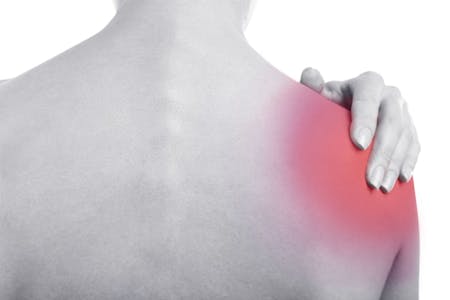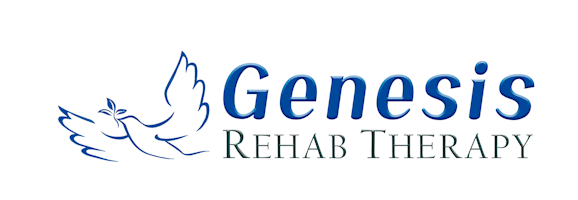Adhesive Capsulitis

Adhesive Capsulitis, or a frozen shoulder, is a poorly understood condition in which the deepest layers of soft tissue, called the joint capsule, become diseased. Shoulder range of motion becomes very limited and painful. The cause of a frozen shoulder is still not known but minor traumas, hyperthyroidism, diabetes, psychiatric patients, post-surgical patients, and prolonged immobilization of the shoulder may in someway cause this condition. The disease is characterized as having freezing, frozen, and thawing stages, and is self-limiting (in time it goes away on its own). However, it can take two years or more to recover from this condition.
Physical therapy consisting of patient education, stretching, joint mobilization, and a home exercise program can help speed recovery. For a small percentage of frozen shoulder patients, it may take two years or more to recover.
Multidirectional Instability Signs and Symptoms
Signs of ligamentous laxity are present. Pain and weakness are present in the shoulder that subluxes (partially moves out of joint) forward, backward, or downward. A positive “sulcus sign” is present on examination by a medical professional.
Most patients respond well with physical therapy. Rarely surgery is indicated because it is hard to stabilize the shoulder in all directions.
Shoulder Tendonitis and Impingement
Tendonitis is an inflammation of the shoulder tendons. The signs of inflammation are pain, warmth, redness, tenderness to touch, and loss of function. Shoulder tendonitis (often called Rotator Cuff Tendonitis) can occur when the rotator cuff is overloaded, fatigued, traumatized, and with age-related degenerative changes. Pinching or impingement of the rotator cuff tendons occurs in a region under a bony structure called the acromion (the projection of the shoulder blade that forms the tip of the shoulder). Impingement happens when the arm is raised overhead repeatedly, or raised overhead with a heavy load in your hand, or may occur when you sleep on your shoulder. X-rays may show a hook or spur that increases the odds that you will pinch the rotator cuff tendons.
Treatment for impingement or rotator cuff tendonitis usually involves rest, anti-inflammatory medications like ibuprofen, physical therapy to restore proper strength and movement, and less often, a cortisone injection.
